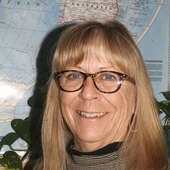- Research tips and McCook Brick Company- solid as a brick (12/16/24)
- Big Give appreciation and some railroad characters (11/15/24)
- George Randel becomes a landowner, gets married, and takes in a Buffalo Bill show (9/20/24)
- The memoirs of George F. Randel, early settler of Red Willow County (9/12/24)
- Vietnam War Memorial honors Nebraskans who served (6/13/24)
- McCook business promotions - just prior to 1893 stock market crash (5/30/24)
- Shall we dance? Meet you at the Gayway (12/8/23)
Early McCook lawyer John Cordeal devoted to public service
Friday, February 3, 2023
John Francis Cordeal was not a native Nebraskan. He was born in Pontiac, Ill. on October 01, 1873, and came with his parents, Mr. and Mrs. Sylvester Cordeal to McCook in 1884 when his father joined forces with his uncle, J. A. Cordeal and formed a law firm. J.A. had been practicing in Alma, Nebraska. It was noted in the paper that Mrs. Cordeal had taken up residence in the Arbuckle home with her children: John, Ernest and Maude.
Sylvester was not long in McCook, traveling between Akron and their home. While John Francis attended school here it could be said that his future passions were already forming in 7th grade where he was co-editor of the newly minted 7th grade newspaper and secretary of the literary club. Notices of his involvement in the literary club told of his essays presented to the public.
His father eventually moved the family to Akron to follow his business investments, but by the 90’s they were back in McCook. Even though John had attended law school in Illinois and involved himself in business adventures there, when he began searching for a place to settle, he found himself looking once again at McCook.
It did not take long for John to plunge headlong into the bustling community. He had briefly been involved with George Norris prior to obtaining his law degree but as a lawyer he joined his uncle’s firm, Eldred, Cordeal and McCarl. McCarl of course became comptroller of the United States Treasury and Eldred left the firm to become judge of the 14th district. Frank Colfer joined the business when he left his position as county judge and later Carson Russell became part of the final firm: Cordeal, Colfer & Russell.
You could hardly pick up a newspaper without seeing John’s name. He was quite literally married to public service. He clerked for judges; he served as interim postmaster; twice he served as interim city clerk; he was appointed to the Nebraska Historical Society; served as the Red Willow County Federal Food Administrator; judged baby contests; contributed to every fundraiser; acted as Secretary for the Keystone Hotel Company; spoke at the early Old Settlers Reunions; answered the call from surrounding counties to give speeches on the history of SW Nebraska; served as city attorney; belonged to the Commercial Club, Rotary and Masonic Lodges and wrote columns on early McCook all while carrying a heavy client caseload at his firm.
While service was his mantle and even though he served as a Nebraska State Senator in 1911, 1913 and 1919, when the call went out for him to run for governor he answered that he would not be seeking another term as senator and undoubtedly there were men far suited to be governor than him, hopefully not just another politician.
He was also gifted with a sense of humor as shown when he contracted the “German Measles” and when informed of the diagnosis, replied that no, he had the “U.S.A. Measles”.
His Driftwood Ranch covered several thousand acres and was at one time slated to be the location of a lake for an irrigation system however, when the final design was submitted he refused to allow his land to be divided so drastically.
Burning the candle at both ends did not serve John’s health well. In February of 1938 at the age of 65 he succumbed to a heart attack. Hundreds passed his coffin as it lay in state at the Pade Funeral home. Comments by A. Barnett, George Moss, H.D. Strunk, Frank Colfer, H.C. Clapp, Rolland Larmon and many other dignitaries were testaments to the influence that John Francis had on our community. Perhaps the greatest tribute came from one of his closest friends, J.E. Kelley, when he said: “In his political and professional life, he possessed the ability to make friends without making enemies of those who opposed him.”
Survived by his brother Ernest and sister Maude, John, who had advised people concerning having wills, failed to do so himself. A search of all his properties and businesses left Ernest with the unpleasant task of dealing John’s estate without a clear picture of what John would have wanted. When an auction was held as a partial disbursement of property, the law books that John had won in college drew bids from attorneys throughout the state.

